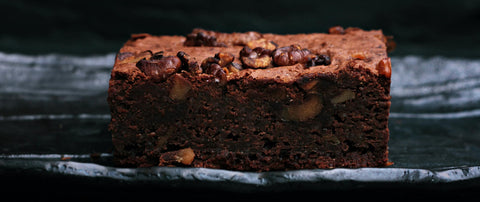Heat floods your body, your heart beats faster or you wake up drenched in sweat? Hot flashes and sweats are among the most common complaints women experience during menopause. This does not make this time particularly pleasant. Here you can find out useful information about the causes and management of hot flashes, menopause and other symptoms.
Inhaltsverzeichnis
Hot flashes: The sudden rush of heat
Everyone knows hot flashes, whether young or old. For example, during sports, when eating spicy food or in stressful situations. However, they are also a harbinger and typical complaint of female menopause. About 85 percent of all women report hot flashes and associated sweating in the years before and after menopause. In 55 percent, the hot flashes begin even before the menstrual cycle becomes irregular. Typical symptoms of hot flashes are:
- a slight pressure on the head and a feeling of discomfort
- a sudden wave of heat that spreads to the face, neck and upper body
- blushing of the face
- sweating or the feeling of heat accumulation
- slight shivering and feeling of coldness as a result of the sweat outbreak
The heat episodes can occur more often a week or even several times a day and last from a few seconds to several minutes. Which is why this symptom is also called flying heat. Heat episodes can also occur at night. Affected women often wake up drenched in sweat. This shortens the important deep sleep phase and can thus interfere with nightly regeneration. Even though some women go through menopause virtually symptom-free, about one third suffer from severe symptoms.
Hot flashes: Menopause and hormonal changes
But what happens during menopause? Menopause is a natural phase of hormonal change in a woman's life. During this time, hormonal balance changes: the ovaries gradually stop producing sex hormones such as estrogen and progesterone, and the cycle begins to become more irregular. This is how the body prepares for the last menstrual period, the menopause. Menopause marks the end of the fertile phase of a woman's life. In Germany, it occurs for the majority of women around the age of 51. Premenopause usually begins in the mid-40s, but menopausal symptoms can persist after menopause. This period is called postmenopause.
According to one study, menopausal symptoms accompany affected women for an average of slightly longer than 5 years. In addition to the widespread hot flashes, which are often associated with heavy sweating, other symptoms can accompany menopause. For example, menopausal women can also suffer from sleep disorders, mood swings, inner restlessness, dry mucous membranes or weight gain.

Hot flashes: Herbal Helpers
Many of the common symptoms of menopause are thought to be due to the change in hormones in the body described above. Hormone replacement therapy may be considered for those women who are affected by severe menopausal symptoms. However, conventional hormone therapy can increase the risk of diseases such as breast cancer or blood clots.
Herbal remedies offer an alternative here. This is because some medicinal plants also have an effect on hormone balance. For example, the native red clover contains secondary plant substances that are similar in structure to the sex hormone estrogen. Such phytoestrogens are also found in Siberian rhubarb. Both are able to bind to estrogen receptors in a similar way to hormones. As a result, they may help relieve menopausal symptoms such as hot flashes. They are currently being discussed as a risk-free alternative to hormone replacement therapy. A similar effect is also attributed to diosgenin, which is found in yam extract. It is similar to the hormone progesterone. Monk's pepper is another medicinal plant that is said to have a positive effect on hormone balance. Valerian, sage or lavender are also said to have a soothing effect on typical symptoms of menopause.
5 tips for hot flashes during menopause
Menopause is a natural process that is part of every woman's life. Dealing with this phase in a self-aware and mindful way can help prevent or alleviate hot flashes, sweats and other possible menopausal symptoms. That's why we've put together 5 tips that can help you deal with hot flashes during menopause:
1. Vitamin-rich diet
Menopausal women can especially benefit from a balanced diet rich in vitamins. Vitamins B6 and B12, along with folic acid, contribute to normal hormone metabolism. Which can help the body regulate hot flashes better. Some of the vital substances are found, for example, in legumes, nuts or seafood. With a vegan or vegetarian diet, vitamin B12 in particular can be in short supply, as it is found exclusively in animal products. Therefore, additional dietary supplements can come into question for you.

2. Herbal Helpers
Herbal helpers can also support your normal hormone balance and help prevent or relieve hot flashes and other symptoms. Phytoestrogens are found in red clover, Siberian rhubarb, and soy, for example. Monk's pepper or yam extract are also thought to have a positive effect on hormone balance. Lavender and valerian can have a calming effect. You will often find preparations in which several of these valuable plant substances are integrated. You should also consult your doctor about herbal active ingredients. They should be tailored to your individual needs during menopause. By the way, a medical examination can also clarify whether you are suffering from hot flashes for other reasons. For example, these are also typical in the case of histamine intolerance.
3. avoid sweat-inducing stimulants
Coffee, alcohol or nicotine can promote hot flashes and sweating. Especially during menopause, you should therefore avoid them or ideally cut them out altogether to reduce unpleasant symptoms. As tasty as spicy and hot foods are, they can also lead to hot flashes. Instead, you can spice up your dishes with fresh and aromatic herbs such as parsley or basil.
4. relaxation
During menopause, stress in everyday life can result in increased hot flashes. Therefore, build enough moments of rest into your day. They can help you alleviate your symptoms. Regular yoga exercises, walks, meditation or progressive muscle relaxation are ways to calm down. The best way to find out which method suits you is through trial and error.
5. clothing
Our last tip: Choose the right clothes for menopause. Dress according to the onion principle with several layers of clothing. This way, if you start to sweat, you can quickly take something off. If you start to feel cold afterwards, you can put on another layer just as quickly. Clothing made of breathable natural fabrics such as linen, cotton or silk is just as useful.
With these practical tips, you can skilfully and confidently deal with the symptoms of menopause and prevent complaints. So that you can enjoy your life to the fullest even in this phase.




 DE-ÖKO-006
DE-ÖKO-006
